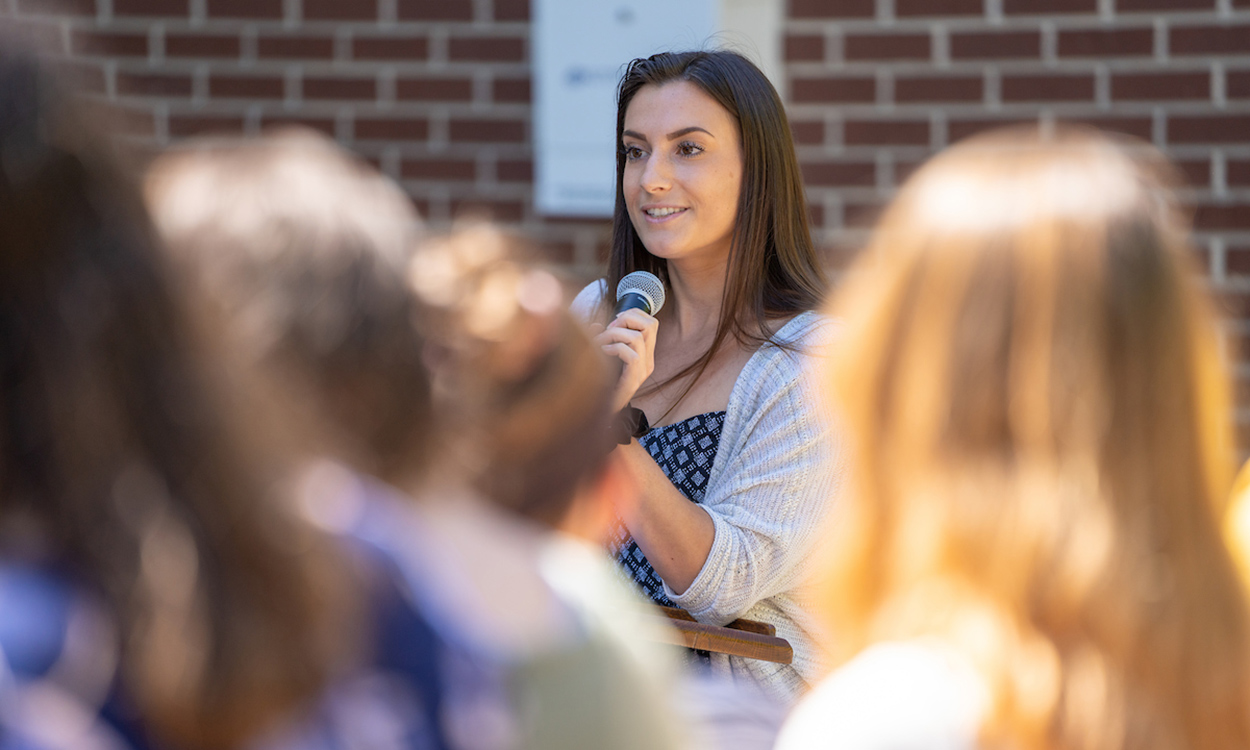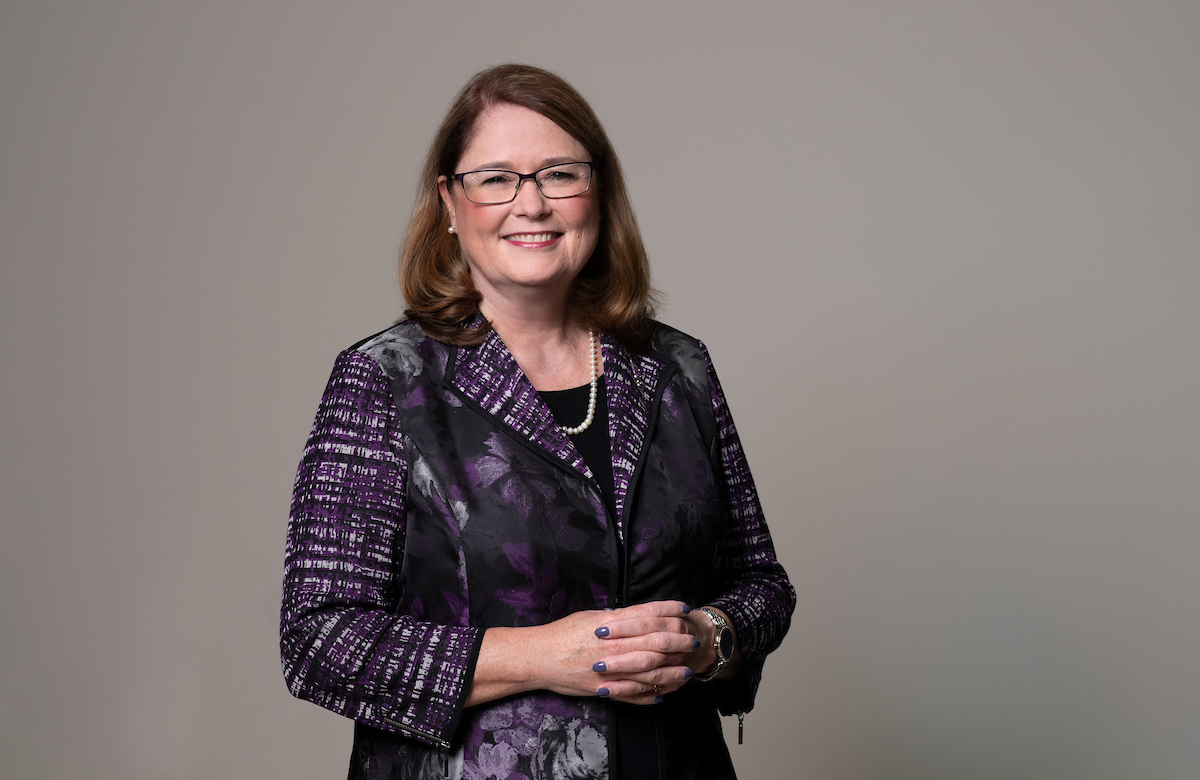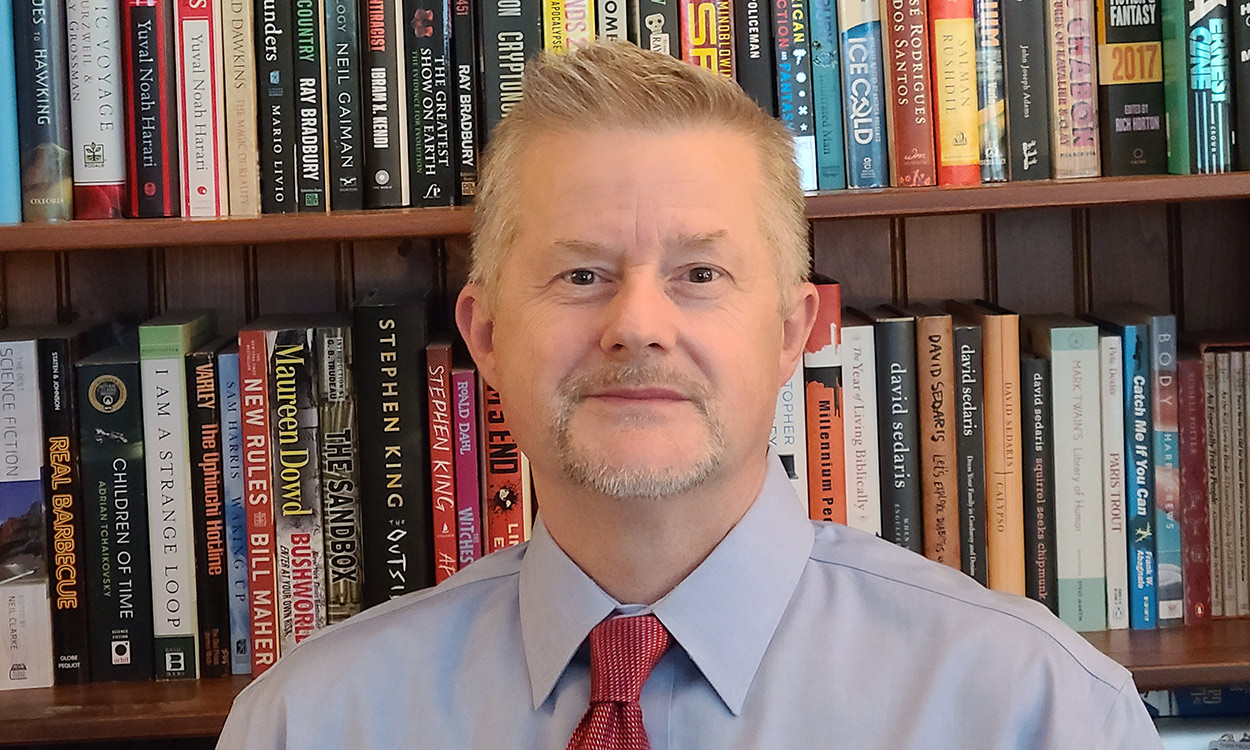Memorial service held at gardens dedicated to anatomy lab donors
Courtney DeDea
Western Carolina University recognized a special group of donors with the dedication of a memorial garden Thursday, May 6, in a ceremony at the Health and Human Sciences Building.
Student and faculty speakers from Physical Therapy and Athletic Training programs said the group of 24 donors from the past two years gave of themselves in a full and complete manner, making a lasting contribution by providing an opportunity for learning that benefits others.
“In death, donors have given us the ultimate gift; the privilege to explore every aspect of their physical being, in our quest to understand how to best help the living. We honor that gift, their physical beings, and today we also stop to remember and honor the donors as emotional beings. Each of them loved, and laughed, and succeeded and failed. We honor their memory,” said Douglas Keskula, professor and director of WCU’s Human Anatomy Laboratory.
“Throughout today’s ceremony you will hear the term ‘donor’ a lot today,” he said. “While ‘cadaver’ is accepted medically, I think it is important to use terminology that is considerate of donor families and conveys to the public the respect that is given throughout the process.”
The expansive human anatomy lab is utilized primarily by the Physical Therapy and Athletic Training programs, both nationally recognized curriculum built upon inter-professional collaboration, evidence-based practice and engagement, including pro bono community clinics.
Courtney DeDea, a second-year student in the Doctor of Physical Therapy (DPT) program, said her first experience in the lab wasn’t ordinary, but left a lasting impression. “On the very first day, an overwhelming amount of emotion came over me. Uncontrollably crying without a good reason, but I made it through,” she said. “Later I reflected on the moment and I wrote a thank you letter to the donor… ‘Dear Barbara, As the weeks passed, I gained some courage and soon enough I understood why we learn this way. The notes and textbooks don’t compare to the truly amazing things you had taught me. Instead of hiding, I learned to embrace this experience, a little more eager to come back each week, a little more excited to make connections that will stay with me forever, a little more avid to want to learn more, and a little braver, because I knew that is what you wanted.’”
The garden, a collection of dogwood trees, native flowers and shrubs with two benches, is hoped to be a contemplative place for students, faculty and guests.
Lori Anderson, dean of the College of Health and Human Sciences, noted the garden’s dogwood trees hold a symbolism and significance in addition to contributing a natural beauty. The state flower of North Carolina, “the dogwood also represents renewal and beginnings, which is a perfect representation of the experience of the student with the donor,” she said.
Speaking to the physical therapy and athletic training students in attendance, Anderson continued. “Someone gave of themselves so that you could deeply understand and study human anatomy and disease. Each individual who gave their body came from different backgrounds and left behind memories for those who knew them. To our students and faculty, each donor also provided the gift of knowing them – you got to know them in a different way. You learned firsthand the intricate workings and the mechanics of the human body and instilled with the higher regard for human life.”
Other speakers included Olivia Rasbornik, a physical therapy student, and Kaitlyn Reavis, an athletic training student, along with assistant professor Tara Peterson.


